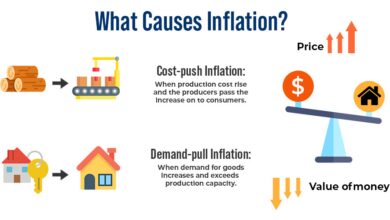
A Primer on Neoliberalism: Understanding a Dominant Economic Ideology
A primer on neoliberalism, this exploration delves into the intricacies of a dominant economic ideology that has shaped the world we live in. From its origins in the post-World War II era to its resurgence in the late 20th century, neoliberalism has profoundly impacted global politics, economics, and society.
It’s a term often thrown around in political discussions, but what does it truly mean? What are its core principles, and how has it influenced the world we live in? Let’s embark on a journey to uncover the complexities of this powerful ideology.
Neoliberalism, in essence, advocates for free markets, deregulation, privatization, and individual responsibility. It champions a minimal role for the state in economic affairs, believing that private enterprise is the engine of economic growth and prosperity. This ideology has its roots in classical liberalism, but it has evolved significantly over time, adapting to changing global dynamics.
Neoliberalism in Contemporary Society: A Primer On Neoliberalism

Neoliberalism has profoundly shaped the global landscape of the 21st century, influencing economic policies, social structures, and technological advancements. Its principles of free markets, privatization, and deregulation have become intertwined with globalization, leading to both opportunities and challenges.
Neoliberalism and Globalization, A primer on neoliberalism
Neoliberalism has played a pivotal role in shaping globalization, particularly in the realm of trade and investment. The promotion of free trade agreements, such as the North American Free Trade Agreement (NAFTA) and the World Trade Organization (WTO), has facilitated the movement of goods, services, and capital across borders.
This has led to increased global trade and investment, but it has also raised concerns about the impact on developing countries, labor rights, and environmental sustainability.
Neoliberalism and Technological Advancements
Neoliberalism’s emphasis on deregulation and privatization has fostered a dynamic environment for technological innovation and the growth of the digital economy. The rise of the internet, e-commerce, and digital platforms has been fueled by neoliberal policies that encourage competition and innovation.
However, this has also led to concerns about the concentration of power in tech giants, the spread of misinformation, and the erosion of privacy.
Challenges and Opportunities for Neoliberalism
Neoliberalism faces several challenges in the 21st century, including the rise of populism, climate change, and technological disruption. Populist movements have gained traction in response to perceived inequalities and the perceived failures of neoliberal policies. Climate change poses a significant threat to the global economy and requires coordinated action beyond the confines of neoliberal principles.
Technological disruption, while offering opportunities for innovation, also raises concerns about job displacement and social inequality.
Evolution of Neoliberalism
Neoliberalism has evolved and adapted over time, reflecting changing global circumstances.
A primer on neoliberalism often focuses on economic policies, but it’s crucial to remember that these policies have far-reaching consequences. One example is the role the US plays in global conflicts, often driven by its own economic interests. The article us contributes directly to armed conflicts around the world sheds light on this complex relationship, reminding us that understanding neoliberalism requires a broader perspective that considers its impact on international security.
Understanding neoliberalism requires a look at its real-world impact. The IMF and World Bank, often seen as its proponents, have faced fierce protests in Washington D.C., imf world bank protests washington dc , highlighting the discontent with the policies they advocate.
These protests underscore the crucial debate around the costs and benefits of neoliberal economic strategies, and how they impact the lives of people around the globe.
A primer on neoliberalism often focuses on economic deregulation and privatization, but its effects extend far beyond the boardroom. The policies it promotes can exacerbate existing inequalities, leading to a situation where the causes of hunger are related to poverty become more pronounced.
Understanding the interconnectedness of these issues is crucial for developing effective solutions that address both economic and social challenges.






